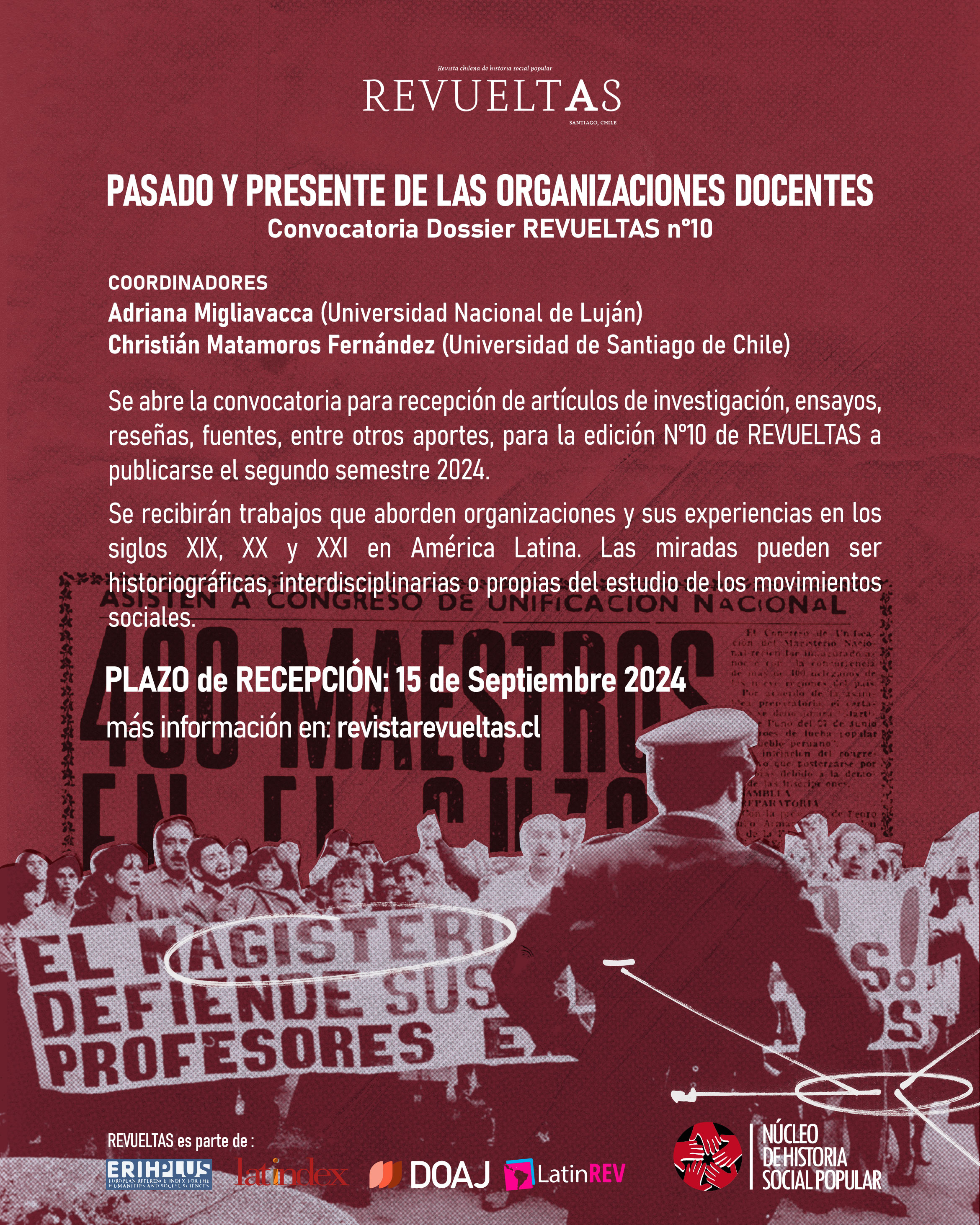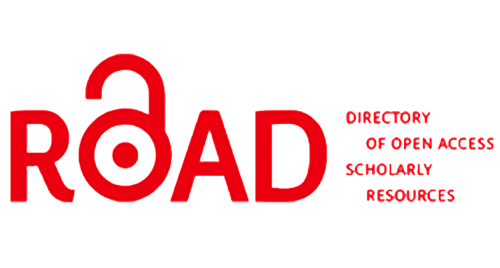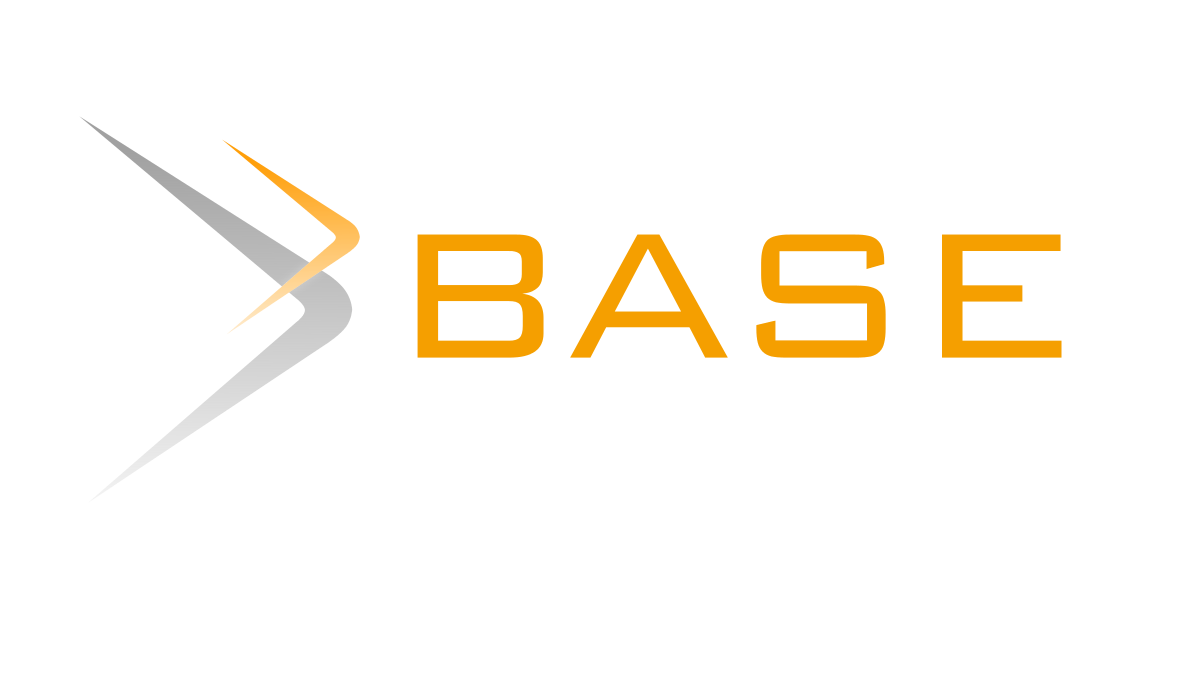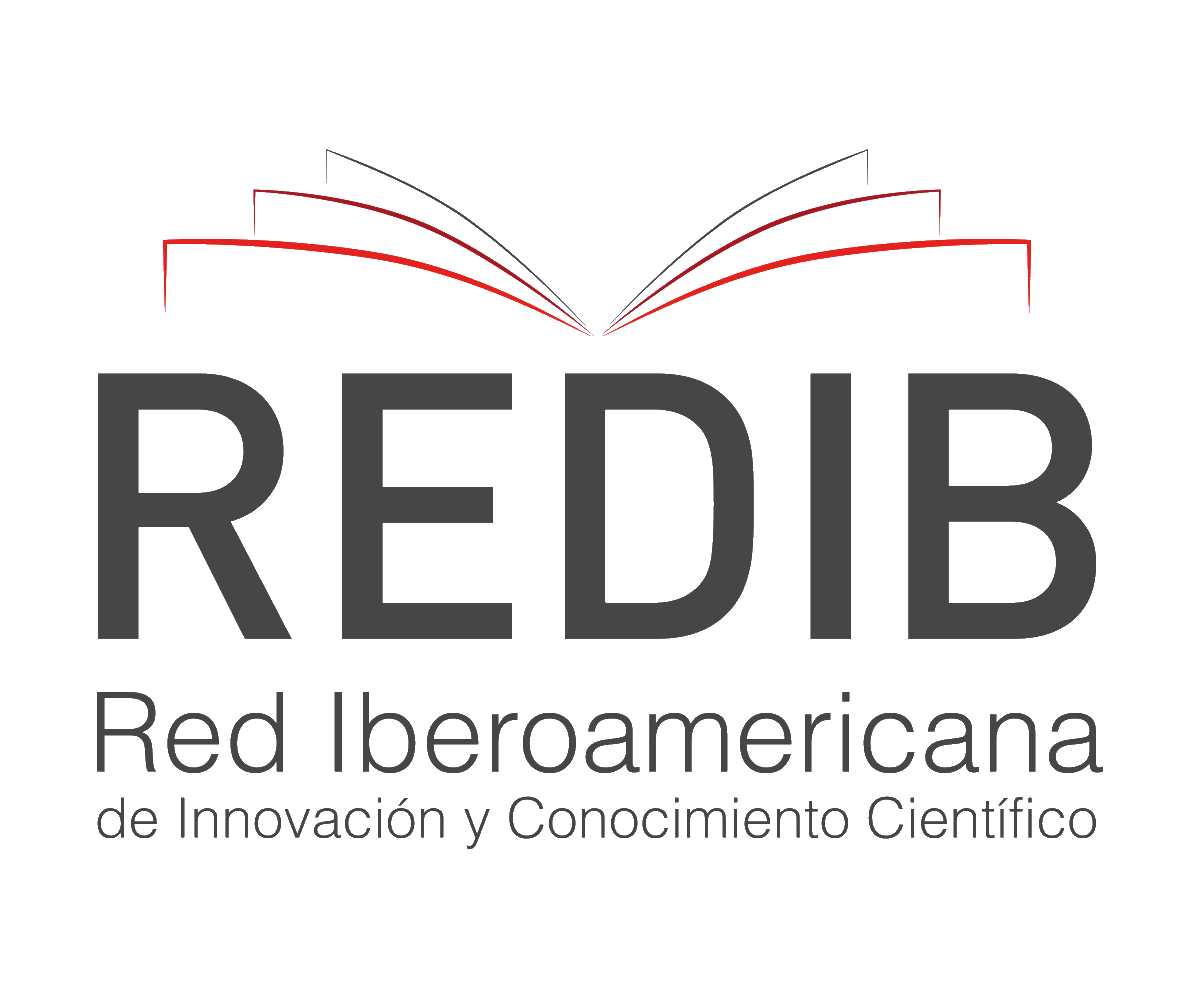Call for Papers for the Dossier 'Past and Present of Educational Organizations' to be published in REVUELTAS No.10."
Call for Papers Dossier No. 10: "Past and Present of Educational Organizations"
Dossier Coordinators:
Adriana Migliavacca (National University of Luján)
Christián Matamoros Fernández (University of Santiago de Chile)

Studies on educational workers' organizations have been developing for several decades. The significant influence of these entities within each country's labor movements, coupled with the visibility of their actions, has fueled increasing research interest.
Reflections on these types of organizations allow us to identify shared characteristics and arrive at a common general periodization in various Latin American countries. A foundational period extends from the beginnings of national education systems - around the late 19th century - to the early 1960s. In an era dominated by a normative mandate for education - embodied in the figure of the teacher as a "functionary" or "apostle" - organizations tended to manifest mutualistic practices and associations within the framework of links they forged with normal schools, secularism, or the new school movement.
Research focusing on periods and processes where organizations have acquired a union character, in line with the construction of a teaching identity understood as part of the working class, has also been significant. In Latin America, this phenomenon gained particular relevance during the 1960s and 1970s, alongside the processes of political radicalization experienced. The new repressive conditions imposed by military dictatorships have often been studied through memory studies, which in some cases have also encompassed the role played by educational organizations in transitional processes to democracy.
Recent historical research on educational workers' organizations has incorporated perspectives and methodologies related to gender studies, labor union action repertoires, political cultures, and stances towards specific educational policies. These perspectives complement established ones, such as those related to internal organizational practices, their dependence/autonomy from states, or strike conflicts. The consequences of neoliberal policies implemented in the educational sphere have led to the emergence of new cycles of teacher unrest in various countries in the region, prompting increased interest from researchers in this subject.
These periodizations have been approached through various theories and methodologies, combining disciplines such as history, sociology, educational policies, labor studies, or social movement theory. The Dossier aims to bring together established theoretical and methodological perspectives with new approaches to the study of educational workers' organizations from national and international perspectives.
In this line, the Dossier seeks to address the following questions: What characteristics have the processes of formation of teachers' organizations had? What have been their main action repertoires? What configurations do conflicts take on in a labor field crossed by struggles over public education? What kind of alliances and discussions do these struggles promote? What forms do disputes within the organizations themselves take? What features do different political cultures present? What role have new technologies played in teacher struggles? What has been the reception of feminism in these organizations? What impacts has the pandemic had on union organization strategies? How do organizations navigate the challenges posed by the post-pandemic era and those influenced by the hegemony of "new right" movements worldwide?
Submissions are welcomed that address organizations and their experiences in the 19th, 20th, and 21st centuries in Latin America. Perspectives may be historiographical, interdisciplinary, or related to the study of social movements.
Submitted works will be evaluated according to the norms of the Revueltas journal. Accepted articles will be published in the dossier "Past and Present of Educational Organizations," which will be part of issue No. 10 of the Revueltas journal, scheduled for publication in December 2024.
The dossier proposes to gather studies considering the following axes of analysis. These are not exclusive; however, submissions should engage with the proposed problematization:
- Action strategies of educational workers' organizations.
- Origins of teachers' unionism and associationism.
- Union practices in education, gender relations, and the feminization of teaching.
- Educational proposals and pedagogical experiences of unionized teachers.
- Recent history of teacher unionism.
- Teacher unions facing the educational agenda of the far right.
- International networks of educational unionism.
- Non-traditional educational workers' organizations (collectives, networks, etc.).
- Activism and political cultures in teachers' organizations.
- Theoretical contributions to the study of unionism in education.
- Memory, oral history, and primary sources in educational workers' organizations.
The dossier accepts research articles, reflections, reviews, bibliographic inventories, and sources and documents for Popular Social History.
Deadline for article submission: September 15, 2024.
Submission guidelines and the link for manuscript submissions can be found at the following link: Submission Guidelines
For inquiries: adrianamiglia22@gmail.com, christian.matamoros@usach.cl
Adriana Migliavacca is a professor and researcher in the Department of Education at the National University of Luján. She specializes in topics related to labor and teacher unionism, pedagogy, and educational policies. She has published book chapters and articles on these topics. She is the author of the book "Teacher Protest in the 1990s: Experiences of Union Organization in the Province of Buenos Aires" and co-coordinator (with Claudia Figari) of the book "Educational Issues in Modernity: Tensions and Conflicts in Contemporary Debate." She is part of the collegial direction of the Network of Researchers on Associativism and Unionism of Educational Workers (Red ASTE).
Christián Matamoros Fernández is a professor in the Department of History at the University of Santiago de Chile. He specializes in topics related to teacher unionism, history of education, political cultures in teaching, and educational policies. He has been the coordinator of the books "Teacher Unionism: Politics and Left-wing Organizations in South America" and the two volumes (with Sebastián Neut) of "New Histories of Education during the Popular Unity." He is part of the collegial direction of the Network of Researchers on Associativism and Unionism of Educational Workers (Red ASTE).





















